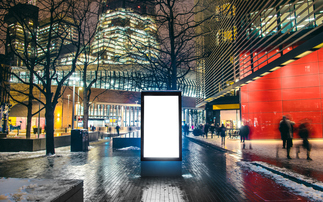The immense popularity of social media and the power of blogs have changed forever the rules of marketing and PR. Devising a campaign through digital channels, which provides interactivity with an audience has a lot of unknowns for businesses - they no longer have complete control of their messages or the conversation, which makes them nervous. However, there are a growing number that are becoming bolder and we are seeing some very innovative digital campaigns that are effectively engaging audiences.
Businesses that make best use of social media understand their audience and what is relevant to them. Those companies that see themselves as an agent for change, particularly in the area of sustainability, are able to identify where online people are talking and what they are saying. This is incredibly useful in terms of being highly targeted with your communication, providing the message is relevant and interesting. A great way I have seen this done is to tap into the potential of people's ideas, concerns and opinions about what they think businesses should be doing. By giving them a voice, companies can not only receive valuable feedback but also help shape their own thinking, and it means they can use this medium to deliver a much more powerful message - they care about the planet and what you think.
There is a huge amount of potential to generate new ideas through social media. So-called "crowd-sourcing" is still a relatively new approach but it is bringing dividends for many big brands within the environmental arena. By asking customers for their ideas, businesses can harness the creativity out there, putting it to some positive use whilst at the same time engaging customers in a more meaningful way. Of course to do this properly, businesses need to be open in their approach providing consumers with an open forum which allows them to contribute simply and without restrictions. Pepsi's Refresh Everything voting site is a good example of this and it has made a massive different to the brand's sustainability reputation. Starbucks' viral sing-along, All you need is love, was a simple but effective tool to get people interested and in the past few months, Sony has also joined in through its Open Planet Ideas initiative which invites people from all over the world to come up with new ways to repurpose existing technologies to solve environmental problems.
Companies are also starting to engage with bloggers more effectively. There is no doubt that the vast majority of bloggers welcome contact from organisations. A survey conducted by PR company Text 100 showed that 90 per cent surveyed welcome contact from companies. However the way that they approach them is important. Far too often PR professionals fail to read the blogs and truly understand their target bloggers' communities. They often seem to expect bloggers to post corporate material, demonstrating a lack of understanding of the medium and the very reason bloggers blog. To be successful, company representatives need to treat bloggers as individuals, providing them with valuable information that complements the work they're doing on their blogs. Bloggers do not want to 'pitched to', in the way that many PR professionals pitch to journalists. Rather they respond to a more informal collaborative approach that invites them to become a part of the campaign, providing comment and helping to steer the campaign's direction.
Clearly there are many opportunities for companies to galvanise interest amongst online audiences for their environmental campaigns. It is important to note though that social media communities are notoriously quick to spot fakery and dismantle corporate spin. The companies that try to hoodwink the public or inflate their claims of sustainability using social media will be found out very quickly. Instead it is much better to be open with your message, listen to what people and communities have to say, and then demonstrate how you might act on that feedback. This new online dialogue will help build brand trust.
Paul Thomas is an Associate Director at PR firm Grayling's CSR, Sustainability & Not-for-profit division






